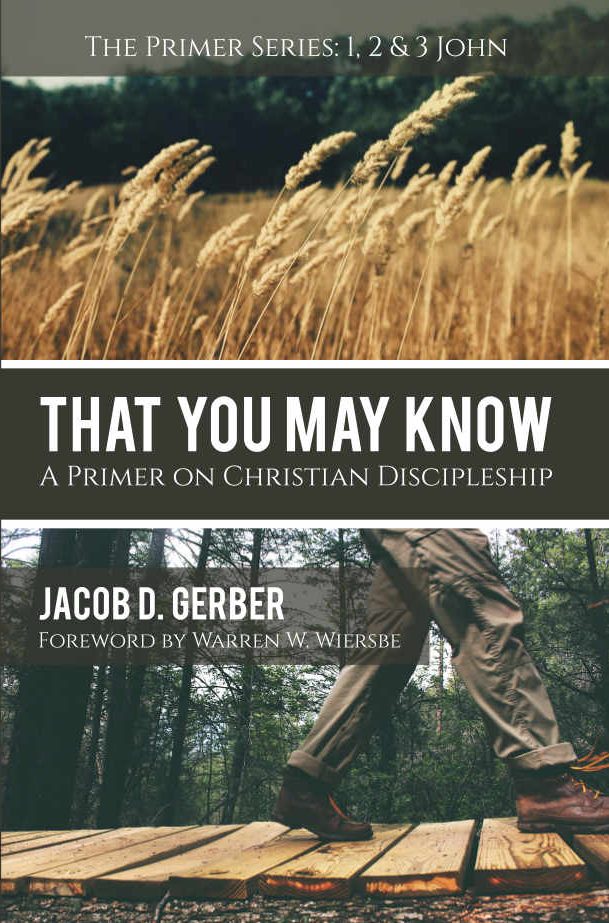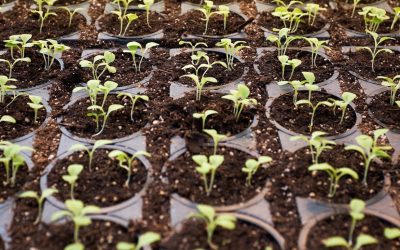Books

While there are many books written about Christian discipleship, there are not nearly enough books on discipleship that primarily expound the Bible itself. The Apostle John wrote three letters, however, with the main purpose of helping disciples to grow.
That You May Know: A Primer on Christian Discipleship is an enriching study that will lead you through John’s teaching on following Jesus as a disciple.
This book is more than a commentary and more than a topical book on the subject of Christian discipleship. Instead, this is a primer on Christian discipleship written as a careful reading of God’s word in 1, 2 & 3 John. It’s ideal for your own individual devotional reading or as a helpful resource for your group Bible study.
Download the First Two Chapters of That You May Know for Free
Bible Studies: Paul's Letter to the Philippians
Studies from my forthcoming pastoral commentary on Paul’s Letter to the Philippians, Have This Mind: A Primer on the Cruciform Life.
Access the complete set of Bible studies from Philippians here.
Bible Studies: The Gospel of John
Access the complete set of Bible studies from the Gospel of John here.
John 4:27–42: The Labor of Jesus
True worship of God in spirit and truth flows out into the true work of sowing and reaping a harvest of sinners reconciled to God through Christ. (Exposition of John 4:27–42)
John 4:1–26: The Gift of Jesus
In the story of the woman at the well, Jesus reveals the full extent of God’s gift of grace to the world. (Exposition of John 4:1–26)
John 3:22–36: The Rise of Jesus
In John 3:22–26, we find one of the clearest descriptions in the whole Bible on the activity, the motivation, and the message of true Christian ministry. (Exposition of John 3:22–36)
John 3:1–21: The New Birth of Jesus
In the first place where Jesus engages in extended teaching in the Gospel of John, he explains the new birth of the Spirit. (Exposition of John 3:1–21)
John 2:13–25: The Zeal of Jesus
How does the zeal of Jesus in cleansing the temple relate to his miracle of turning water into wine? (Exposition of John 2:13–25)
John 2:1–12: The Abundance of Jesus
By turning water into wine, Jesus does more than to perform a miracle—he illustrates the overflowing abundance of his entire ministry. (Exposition of John 2:1–12)
Bible Studies: The Book of Genesis
Access the complete set of Bible studies from Genesis here.
Genesis 22:1–24: The Cure of Abraham
In Abraham’s test of sacrificing Isaac, we learn that God heals our innermost injuries by calling us to sacrifice our most precious possessions. (Exposition of Genesis 22:1–24)
Genesis 21:22–34: The Callings of Abraham
God accomplishes more than we realize through our ordinary, mundane callings. God sanctifies us through our vocations. (Exposition of Genesis 21:22–34)
Genesis 21:1–21: The Casting-Out of Abraham
Our Enemy tells us that God withholds good from us. On the contrary, God cares for our needs more than we do. God fulfills his promises. (Exposition of Genesis 21:1–21)
Genesis 19:30–20:18: The Correction of Abraham
While we might be tempted to think that sin only exists elsewhere, the Scriptures tell us that God disciplines those whom he loves. (Exposition of Genesis 19:30–20:18)
Genesis 19:1–29: The Covenant Remembrance of Abraham
The only hope for unrighteous people is in the prayers of the righteous, for God remembers the prayers of the righteous when he judges the wicked. (Exposition of Genesis 19:1–29)
Genesis 18:16–33: The Confidence of Abraham
Can we really trust God? In fact, God invites us to bring our concerns to him. God reveals his righteous character by word and prayer. (Exposition of Genesis 18:16–33)
Bible Studies: Paul's First Letter to the Corinthians
Access the current set of Bible studies from 1 Corinthians here.
Bible Studies: The Letters of John
Access the complete set of Bible studies from the Letters of John here.
Bible Studies: The Gospel of Luke
Access a handful of Bible studies from the Gospel of Luke here. These were studies written during the Advent season of 2018. At the moment, I do not have plans to continue working through the Gospel of Luke; however, I wanted to make these few studies available online for whomever may benefit from them.
Bible Studies: The Book of Ecclesiastes
Access the complete set of Bible studies from the Book of Ecclesiastes here.
Bible Studies: The Gospel of Matthew
Matthew 20:17–19: Discipleship in Death and Resurrection
As Jesus approaches Jerusalem, he must address the ambitious, reward-seeking desires of his disciples. Seek Jesus’ resurrection reward. (Exposition of Matthew 20:17–19)
Matthew 20:1–16: The Last Will be First
In the parable of the laborers in the vineyard, Jesus teaches further about how he reverses positions. Not only does Jesus make the first last, but Jesus makes the last first. (Exposition of Matthew 20:1–16).
Matthew 19:23–30: With God All Things are Possible
How can we break free from the seemingly impossible temptation of measuring our security by our wealth? With God all things are possible. (Exposition of Matthew 19:23–30)
Matthew 19:16–22: Treasure in Heaven
The Law demands more than external obedience, but it even regulates our internal desires. Therefore, lay up for yourself treasure in heaven. (Exposition of Matthew 19:16–22)
Matthew 19:13–15: “Let the Little Children Come to Me”
Jesus insists that the new covenant will be more inclusive of children than under the old covenant. Therefore, bring the little children to Jesus. (Exposition of Matthew 19:13–15)
Matthew 19:1–12: Marriage from the Beginning
While hard-hearted people have always looked for loopholes to escape the obligations of marriage, Jesus sanctifies us through faithfulness in marriage. (Exposition of Matthew 19:1–12)


















